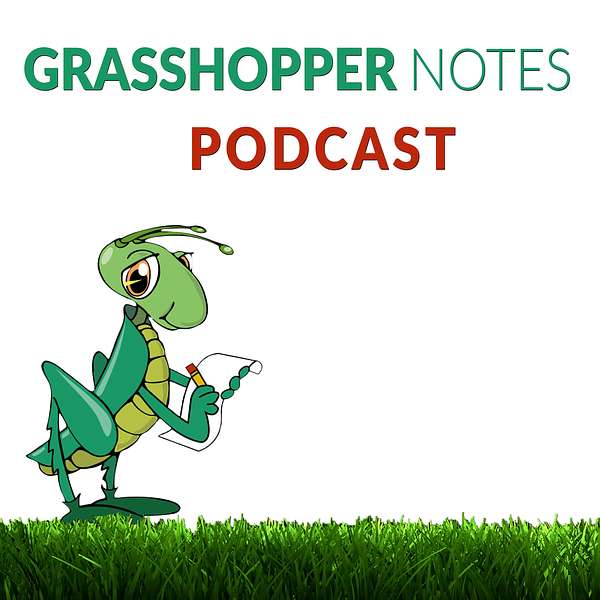
Grasshopper Notes Podcast
The Grasshopper Notes Podcast is hosted by John Morgan the man who has been billed as America’s Best Known Hypnotherapist.
John’s podcasts are a collection of guided meditations and bite-sized, mini podcasts which open you to new ways of thinking, communicating, and responding. You get a finer appreciation of how your mind works and how to use your internal resources to your best advantage.
See a video of John's background at the following link: https://www.youtube.com/watch?v=XbCPd00ok0I
In short, John Morgan is a people helper. Explore this channel and see what he can help you discover.
Grasshopper Notes Podcast
The Mystery Of Human Nature
Just when you think you can figure people out, you're thrown a curve ball. Find out what to do then in this mini podcast.
Grasshopper Notes are the writings from America's Best Known Hypnotherapist John Morgan. His podcasts contain his most responded to essays and blog posts from the past two decades.
Find the written versions of these podcasts on John's podcasting site: https://www.buzzsprout.com/1628038
"The Grasshopper" is the part of you that whispers pearls of wisdom that seem to pop into your mind from out of the blue. John's essays and blog posts are his interpretations of these "Nips of Nectar." Others have labeled his writings as timeless wisdom.
Most of the John's writings revolve around self improvement and self help. They address topics like:
• Mindfulness
• Peace of mind
• Creativity
• How to stay in the present moment
• Spirituality
• Behavior improvement
And stories that transform you to a wider sense of awareness that presents more options. And isn't that what we all want, more options?
John uploads these podcasts on a regular basis. So check back often to hear these podcasts heard around the world. Who wants to be the next person to change?
Make sure to order a copy of John's new book: WISDOM OF THE GRASSHOPPER – 21 Days to Creativity. These mini-meditations take you inside where all your creative resources live. And you'll come out not only refreshed but recommitted to creating your future.
It's only $16.95 and available at BLURB.COM at the link below. https://www.blurb.com/b/10239673-wisd...
Also, download John's FREE book INTER RUPTION: The Magic Key To Lasting Change. It's available at John's website https://GrasshopperNotes.com
The Mystery Of Human Nature
When it comes to human nature, I think you’ll agree—there are just as many mysteries as there are revelations.
And if there’s one thing you can count on, it’s this: people will surprise you.
Since the dawn of time, we’ve been trying to classify people. Over the years, all sorts of personality models have popped up—too many to count. Each one claims to sum us up in a neat little sentence.
Now, I find these systems useful in a broad sense. They help me quickly get a feel for the kind of personality I’m dealing with. They get me in the ballpark. But after that? It gets a lot less predictable.
That’s where the ability to respond comes in. Because if you stick to a rigid step-by-step approach, and the other person suddenly acts out of character, the whole communication stalls.
It reminds me of an old radio talk show technique. Imagine you’ve got a guest you haven’t prepared for, talking about a topic you know nothing about. After the intro and a couple of broad questions, you switch into what I call “last sentence mode.” You simply build your next question from the last thing they said.
So if your guest says, “Yes, this car of the future comes with a four-barrel ashtray”—you don’t freeze. You just lean in and say, “A four-barrel ashtray? Tell us more about that.”
That’s how you keep the conversation alive.
Because people don’t always react the way your favorite personality model predicts. And when they throw you a curveball, that’s when you toss out the manual and reach for a genuine response.
That means letting your automatic reaction go by—so you don’t swing and miss. Instead, wait a beat, then offer something fresh and flexible.
One of my teachers, Dr. Dave Dobson, gave us a simple three-step formula for handling those critical or surprising remarks:
- Ask a question in response.
- Ask with genuine curiosity.
- Ask in a neutral tone—without the “screw you” in your voice.
That little shift keeps the conversation moving and gives you a much better chance for a productive outcome.
The mystery of human nature? I don’t think we’ll ever solve it. But here’s the takeaway: when someone puzzles you, don't take the bait and swing at their curve ball. Respond instead.
All the best,
John
